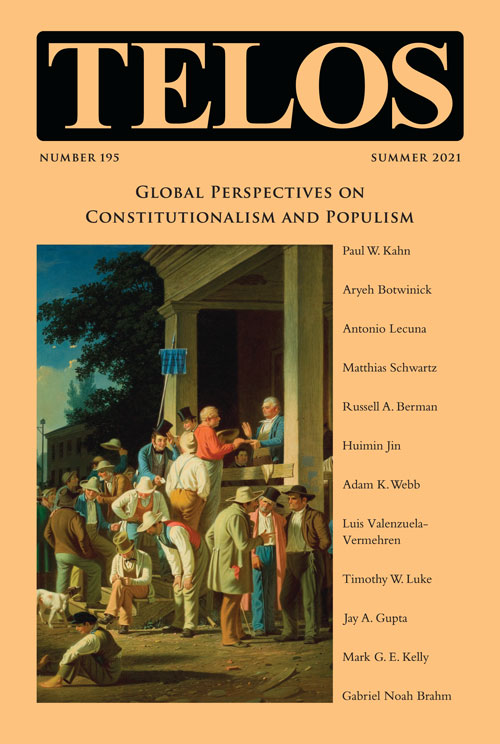One of the surprising aspects of the Ukraine War is that it came as a surprise. After the devastation that Russia wreaked in Chechnya, after the invasion of Georgia, after the occupation of Crimea—and the list goes on: after Russia’s complicity in the destruction of Aleppo and the violence of the Wagner Group deployments especially in Africa, and, most obviously, after Putin’s explicit declaration of his intent, the West could nevertheless watch Russia prepare for the invasion and still believe that it would not happen. Before the invasion would have been the time to arm Ukraine. Instead the West succumbed to a Chamberlain-like logic of self-delusion: if we do nothing, the aggressor will dissipate. The wishful thinking of liberalism is a scourge. It remains to be seen whether the brutality of Russian violence will change that mindset in the foreign policy elite. Optimism is not warranted.
|
Is Putin the madman they say? Or is he, to the contrary, somebody who coldly calculates his rational self-interest, in the manner of Thomas Hobbes’s legendary sovereign power or Niccolò Machiavelli’s eponymous prince? In short, is it surrealism, rooted in deranged psychological fantasy, or Realism, grounded in hardcore political science, that we are up against? Or could there be an alternative way of looking at it, one less familiar, more specific, grown-up, and intellectually challenging, if also less emotionally reassuring? Let’s try putting in jeopardy our own “moral clarity” for a change. After all, while every war must perforce seem “needless” to beautiful souls, just as any person in charge of a modern state could be tagged a “killer” by children, nevertheless, military conflict, experience teaches, will not always be so readily averted. If only for the sake of a diverting thought experiment, let’s examine in a bit more detail some possibilities—in hopes of dispelling a portion of the gloom that engulfs us in these dark times. I was completely wrong when I opined on February 9 that the Russians would not invade Ukraine. I mistakenly took them for more rational than they turned out to be. Mea maxima culpa. For the rest, I was not mistaken at all when I enumerated the reasons that militated against a martial adventure. The course the war took shows that the Russian leadership neglected them or, what is worse, does not read the Telos blog. Here are some obstacles to a successful operation I indicated and the consequences we can see today. With the exception of the inhabitants of the separatist regions, no one greeted the Russians as liberators. The invaders crossed the border at provinces with a sizable Russian population, at regions where a significant proportion of people claim Russian as their mother tongue, no matter the ethnic group their ancestry happened to belong to. At the 2019 elections, all these regions voted overwhelmingly for current president Volodydmyr Zelensky, who is of Jewish origin, not necessarily an advantage in Eastern Europe. The comedian-turned-war-leader won more than 73 percent of the voices against his rival, billionaire and outgoing president Petro Poroshenko, who can boast Ukrainian forefathers. The Kremlin bosses apparently believed that only ethnic, religious, and linguistic affinities define political allegiances in Ukraine, or they simply did not take the trouble to have a look at the relevant statistics. The Western ballyhoo about the danger of Russian occupation of Ukraine is preposterous. We can sleep soundly, the Russians will not attack. They did not abandon their obsession with reconquering as much as they can of the defunct Soviet empire. But they cannot expect any gain from an adventure in Ukraine. It is not simple to overrun a country nearly as large as France with a population of more than 40 million people. Granted, the invaders can mobilize pretty girls in national costumes who would greet them with flowers and (according to East Slavic tradition) with bread and salt. In the worst of cases, they can import the girls from Russia. They can also find collaborators but hardly enough to run the administration and the economy. Especially, they cannot find collaborators among leading politicians whose reputation and popularity would secure broad support. Also, they can do nothing to placate citizens through raising poor living standards, finishing with omnipresent corruption, and proving that they offer a brighter future than the establishment they would defeat. In today’s episode of the Telos Press Podcast, David Pan talks with Matthias Schwartz about his article “Servants of the People: Populism, Nationalism, State-Building, and Virtual Reality in Contemporary Ukraine” from Telos 195 (Summer 2021). An excerpt of the article appears here. In their conversation they talked about the history of the Euromaidan and how it contributed to nationalism in Ukraine; the election of President Volodymyr Zelensky, who previously portrayed the president of Ukraine in the hit TV show Servant of the People; the way that Zelensky’s presidency undercut the nationalist form of politics by decoupling nationalism from populism; and the changes that Zelensky has (or has not) brought to Ukrainian politics. If your university has an online subscription to Telos, you can read the full article at the Telos Online website. For non-subscribers, learn how your university can begin a subscription to Telos at our library recommendation page. Print copies of Telos 195 are available for purchase in our online store. Telos 195 (Summer 2021): Global Perspectives on Constitutionalism and Populism is now available for purchase in our store. Individual subscriptions to Telos are also available in both print and online formats.
|
||||
|
Telos Press Publishing · PO Box 811 · Candor, NY 13743 · Phone: 212-228-6479 Privacy Policy · Data Protection Copyright © 2025 Telos Press Publishing · All Rights Reserved |
||||



